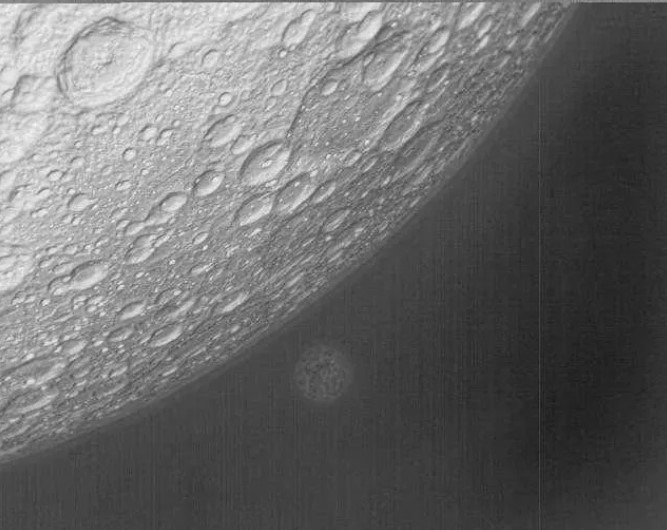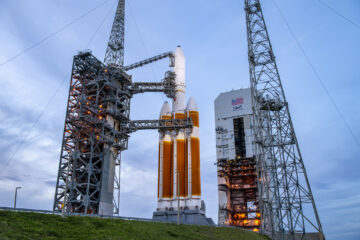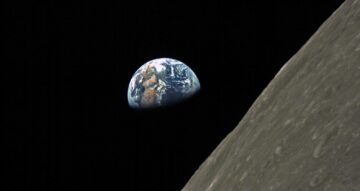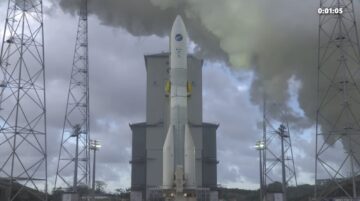
HELSINKI — The Queqiao-2 satellite has completed function and performance tests in lunar orbit, clearing China to launch its upcoming lunar far side sample return mission.
Queqiao-2 completed on-orbit communication testing in recent days, the China National Space Administration (CNSA) announced April 12.
The spacecraft conducted successful communication tests with Chang’e-4 mission spacecraft on the far side of the moon April 6. This was followed by a test April 8-9 Beijing time with the Chang’e-6 spacecraft back on Earth, which is yet to launch.
Confirming the operation and performance of Queqiao-2 is the final step before China launches its complex Chang’e-6 mission. The planned 53-day is a more ambitious follow-up to the 2020 Chang’e-5 sample return mission which collected 1,731 grams of lunar material from the moon’s near side.
Chang’e-6 now appears set to launch May 3 according to airspace closure notices. The mission aims to collect up to 2,000 grams of rock samples from Apollo crater on the lunar far side.
That hemisphere of the moon never faces the Earth due to tidal locking. Queqiao-2 has thus been deployed to enable the pioneering mission by relaying signals between ground stations and Chang’e-6 on the lunar far side.
If successful, Chang’e-6 would deliver lunar material to Earth. Analysis of these could provide new insights into the history of the moon and the differences between its near and far sides.
China launched the Queqiao-2 lunar communications relay satellite March 19 on a Long March 8 rocket. The spacecraft entered lunar orbit March 24 and realized its intended elliptical, 24-hour-period orbit April 2.
Also aboard the Queqiao-2 launch were a pair of smaller spacecraft named Tiandu-1 and Tiandu-2. The CNSA statement confirmed the pair separated from each other in lunar orbit April 3.
The duo are now conducting a series of communication technology verification tests. The experimental satellites will fly in formation in lunar orbit and conduct tests for navigation and communications technology verification.
The pair are pathfinders for the planned wider Queqiao constellation to provide lunar navigation and communication services. Tiandu-2 also returned an infrared image of the moon and distant Earth taken April 8.
Queqiao-2: A bridge to the far side and beyond
Queqiao-2, or “Magpie Bridge-2”, is a more capable follow-up to Queqiao, launched in 2018. The earlier satellite facilitated theChang’e-4 mission. That mission, consisting of a lander and rover, made the first-ever lunar far side landing in 2019.
The new, 1,200-kilogram satellite carries a 4.2-meter parabolic antenna and is part of China’s plans for future lunar exploration and a stepping stone towards building a lunar base in the 2030s.
Queqiao-2 will shift its orbit into a 12-hour period to support the 2026 Chang’e-7 and later Chang’e-8 missions. These missions will target the lunar south pole to detect volatiles and potential resources on the moon.
Queqiao-2 will improve communications between Earth and spacecraft at the lunar south pole, while also conducting relevant science with its own payloads.
Chang’e-8 will test in-situ resource utilization techniques, such as using lunar regolith to produce bricks. Together, the missions are precursors to the China-led International Lunar Research Station (ILRS).
Thailand recently became the ninth country to join the ILRS. Recent reports indicate that Turkey has also applied to join the initiative, first formally unveiled by China and Russia in 2021.
- SEO Powered Content & PR Distribution. Get Amplified Today.
- PlatoData.Network Vertical Generative Ai. Empower Yourself. Access Here.
- PlatoAiStream. Web3 Intelligence. Knowledge Amplified. Access Here.
- PlatoESG. Carbon, CleanTech, Energy, Environment, Solar, Waste Management. Access Here.
- PlatoHealth. Biotech and Clinical Trials Intelligence. Access Here.
- Source: https://spacenews.com/chinas-queqiao-2-relay-satellite-ready-to-support-lunar-far-side-sample-mission/
- :has
- :is
- $UP
- 000
- 1
- 12
- 19
- 2%
- 2018
- 2019
- 2020
- 2021
- 24
- 4
- 6
- 8
- a
- According
- administration
- aims
- airspace
- also
- ambitious
- an
- analysis
- and
- antenna
- apollo
- appears
- applied
- April
- ARE
- AS
- At
- back
- base
- became
- been
- before
- Beijing
- between
- BRIDGE
- Building
- by
- capable
- China
- Chinas
- Clearing
- closure
- collect
- collected
- Communication
- Communications
- Completed
- complex
- Conduct
- conducted
- conducting
- CONFIRMED
- Consisting
- could
- Days
- deliver
- deployed
- detect
- differences
- Distant
- due
- duo
- each
- Earlier
- earth
- enable
- experimental
- exploration
- faces
- facilitated
- far
- final
- First
- first-ever
- followed
- For
- Formally
- formation
- from
- function
- future
- Grams
- Ground
- history
- HTML
- HTTPS
- image
- improve
- in
- indicate
- Initiative
- insights
- intended
- International
- into
- ITS
- join
- jpg
- landing
- launch
- launched
- launches
- locking
- Long
- Lunar
- made
- March
- material
- May..
- Mission
- missions
- Moon
- more
- Named
- National
- Navigation
- Near
- never
- New
- now
- of
- on
- operation
- or
- Orbit
- Other
- own
- pair
- parabolic
- part
- performance
- period
- Pioneering
- planned
- plans
- plato
- Plato Data Intelligence
- PlatoData
- potential
- produce
- provide
- ready
- realized
- recent
- recently
- relevant
- Reports
- research
- resource
- Resources
- return
- Rock
- rocket
- rover
- Russia
- sample
- satellite
- satellites
- Science
- Series
- Services
- set
- shift
- side
- Sides
- signals
- smaller
- South
- Space
- spacecraft
- Statement
- station
- Stations
- Step
- stepping
- STONE
- successful
- such
- support
- taken
- Target
- techniques
- Technology
- test
- Testing
- tests
- that
- The
- The Initiative
- These
- this
- Thus
- time
- to
- together
- towards
- Turkey
- unveiled
- upcoming
- using
- utilization
- Verification
- was
- were
- which
- while
- will
- with
- would
- yet
- zephyrnet










